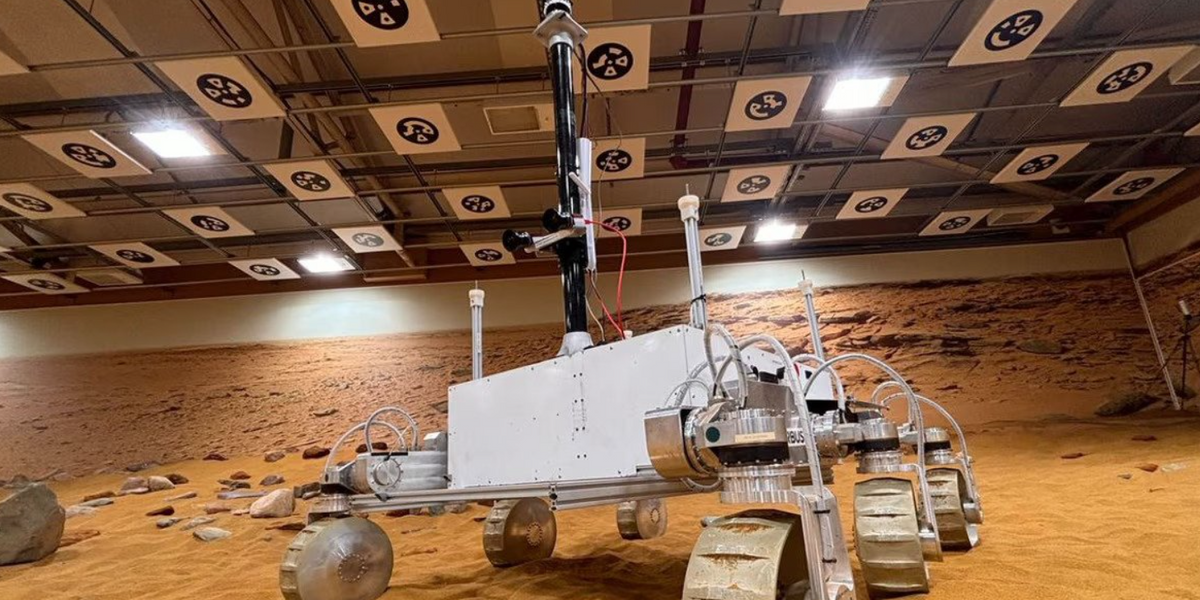Scientists are developing a new AI system which could see robots on Mars powered by insect brain algorithms.
Opteran, a British startup from the University of Sheffield, has partnered up with Airbus, Europe’s largest aerospace company, and the UK and European Space Agencies, to develop the exciting new technology.
The company has said that it has “reverse-engineered biological brains” to power the new AI system.
It hopes that the new technology will allow Martian rovers to move through challenging environments without the need for extensive data or training.
Robots powered by insect brains could be used on Mars in new AI breakthrough
Opteran
David Rajan, the chief executive of Opteran, said: “What we’ve done is to reverse-engineer biological brains and set out to build a universal way or a general purpose way for any machine to move around.
“We’re harnessing 600 million years of evolution to create something we call neuromorphic software for machines. It’s a radical new scientific approach to doing AI.
“The whole world is doing AI with data. It’s all about massive volumes of data crunching. We asked a very simple question, which was, ‘What did nature do?’ And we went inside the brains of insects like bees, ants and flies to figure this out.”
Whilst a honeybee’s brain contains about one million neurons, far less than a human’s 86 billion, it is still incredibly powerful.
SPACE LATEST:
Experts have come to the conclusion that the bugs are some of the most ‘efficient navigators in the natural world’
PA
Following an experiment last year conducted by a team at the University of Sheffield, experts have come to the conclusion that the bugs are some of the most “efficient navigators in the natural world”.
Dr MaBouDi, of Sheffield’s Department of Computer Science, who worked alongside counterparts at Macquarie University in Sydney, said: “What we’ve done in this study is reveal the underlying mechanisms which drive these remarkable decision-making capabilities.
“We can now use these to design better, more robust and risk-averse robots and autonomous machines that can think like bees – some of the most efficient navigators in the natural world.”
The team at Opteran, which consists of 45 people, believe that the robots could benefit from these qualities.
The company has said that it has ‘reverse-engineered biological brains’ to power the new AI system
Opteran
Space rovers use their cameras to map out surroundings in a matter of minutes – however, Opteran believe this could be cut down to miliseconds.
“It is uniquely able to operate with the lowest size, weight, and at ultra-low power,” Rajan said about the new technology.
The system is currently being tested at the Airbus Mars yard, based in Stevenage, Hertfordshire.
The site recreates Mars’ difficult terrain and Rajan said that so far, the results being produced were “great”.
“Today, no such flight-ready systems exist,” he said. “So there is a major opportunity for Opteran to step up and resolve a challenge facing all the major players in space robotics.”

